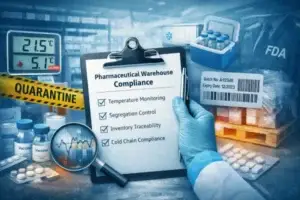GMP (Good Manufacturing Practice)
Definition
GMP for Biologics refers to the application of Good Manufacturing Practice standards specifically to the production of biological products, including cell and gene therapies, monoclonal antibodies, vaccines, and recombinant proteins. These practices ensure that biologics are consistently produced and controlled according to quality standards appropriate for their intended use and as required by regulatory authorities.
GMP in biotechnology is essential due to the complexity, sensitivity, and variability of biologic products, which are often derived from living organisms and require stringent controls to ensure safety, purity, and efficacy.
Detailed Explanation
Why GMP Is Critical in Biologics Manufacturing
Unlike traditional small-molecule drugs, biologics are large, complex molecules produced using living cells. This complexity introduces unique challenges in their development, manufacturing, and quality control. GMP ensures that these processes are standardized, reproducible, and compliant with regulatory expectations, minimizing risks of contamination, variability, and product failure.
Key Elements of GMP for Biologics
- Facility Design: Biologic manufacturing requires cleanroom environments with controlled temperature, humidity, and particulate levels to prevent contamination.
- Personnel Training: Staff must be trained in aseptic techniques, contamination control, and equipment handling specific to biotech processes.
- Documentation: Detailed records of production, testing, and quality assurance activities must be maintained to ensure traceability and compliance.
- Quality Control (QC) and Quality Assurance (QA): Rigorous testing of raw materials, in-process samples, and final products is required to verify identity, potency, purity, and safety.
- Validation: Equipment, processes, and analytical methods must be validated to demonstrate consistent performance.
Applications in Cell and Gene Therapy
Cell and gene therapies represent a rapidly growing area within biologics. GMP compliance is especially critical in this field due to the personalized nature of treatments and the high risk of contamination or variability. For example, autologous cell therapies involve handling a patient’s own cells, requiring strict segregation and traceability to avoid mix-ups or cross-contamination.
Global Regulatory Context
Regulatory agencies such as the FDA (U.S.), EMA (Europe), and PMDA (Japan) enforce GMP guidelines for biologics. While the core principles are harmonized through ICH guidelines, specific requirements may vary by region. Manufacturers must align their quality systems with local and international regulations to ensure market approval.
Examples of GMP Guidelines for Biologics
- FDA’s Guidance for Industry: CGMP for Phase 1 Investigational Drugs
- EU Guidelines for GMP Part I and Annex 2 (specific to biological medicinal products)
- ICH Q7: Good Manufacturing Practice Guide for Active Pharmaceutical Ingredients
Challenges in Implementing GMP in Biotechnology
Implementing GMP in biologics manufacturing is resource-intensive and requires cross-functional expertise in microbiology, engineering, quality systems, and regulatory affairs. Common challenges include:
- Maintaining sterility in aseptic processing environments
- Ensuring batch-to-batch consistency despite biological variability
- Scaling up from clinical to commercial production while maintaining compliance
GMP Audit Readiness
Manufacturers must be prepared for inspections by regulatory bodies to verify GMP compliance. This includes maintaining audit trails, performing internal audits, and implementing CAPA (Corrective and Preventive Actions) programs. Non-compliance can lead to warning letters, import bans, or product recalls.
